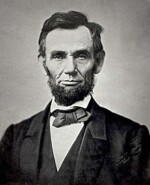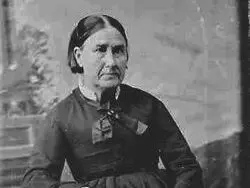Read one of the intriguing Walt Whitman poems “O Captain my Captain” bring patriotic feeling and the great respect for Abraham Lincoln.
Walt Whitman (b. 31 May 1819 — d. 26 March 1892) of Long Island, who lived around and studied from public school. What was the connection between both? Though Walt Whitman and Abraham Lincoln never met in life.
When he was 12, began falling in love with written words of Shakespeare, Homer, Dante and an avid reader of the Bible. Whitman taught many students on Long Island in one single room and became a teacher.
Finally, he found long waited movement of his true wish, he jumped off the cliff of a single room school house to the bay of journalists. His thoughts and words spinning around in his head prove his journalism best.

The founder of The Long-Islander
He founded a newspaper called “The Long-Islander” Walt also known as one of the famous editors who edited many newspaper articles of Brooklyn and New York City. Whitman’s poems, O Captain! Written shortly after the death of US President Abraham Lincoln (<< read handwritten letter of Abraham Lincoln to Lydia Parker Bixby). Whitman expressed his intense grief and mythical connection of Mr Lincoln. The Poem, O Captain! My Captain! Became so famous and popular during his time.
During the American Civil War, Whitman soon reached to the Hospitals of Washington DC and volunteered.
He worked for government although he never met Lincoln in his life. Walt felt so close to him and shook upon the assassination of the president. “The Saturday Press” was the first who published the poem, “O Captain!”

The poem “O Captain” generated a lot of connection of Walt Whitman for Abraham
It is one of the famous Walt Whitman poems and it is the most enjoyed
O Captain! My Captain! Our fearful trip is done,
The ship has weather’d every rack, the prize we sought is won,
The port is near, the bells I hear, the people all exulting,
While follow eyes the steady keel, the vessel grim and daring;
But O heart! Heart! Heart!
O the bleeding drops of red,
Where on the deck my Captain lies,
Fallen cold and dead.
O Captain! My Captain! rise up and hear the bells;
Rise up—for you the flag is flung—for you the bugle trills,
For you bouquets and ribbon’d wreaths—for you the shores a-crowding,
For you, they call, the swaying mass, their eager faces turning;
Here Captain! Dear father!
This arm beneath your head!
It is some dream that on the deck,
You’ve fallen cold and dead.
Read collection of Walt Whitman's poems published by Oxford University Press
MORE MUST-READ STORIES
- Dashdorjiin Natsagdorj: poem “my native land, Mongolia”
- Patriot Evoking Poem of Kazi Nazrul Islam, The Rebel






